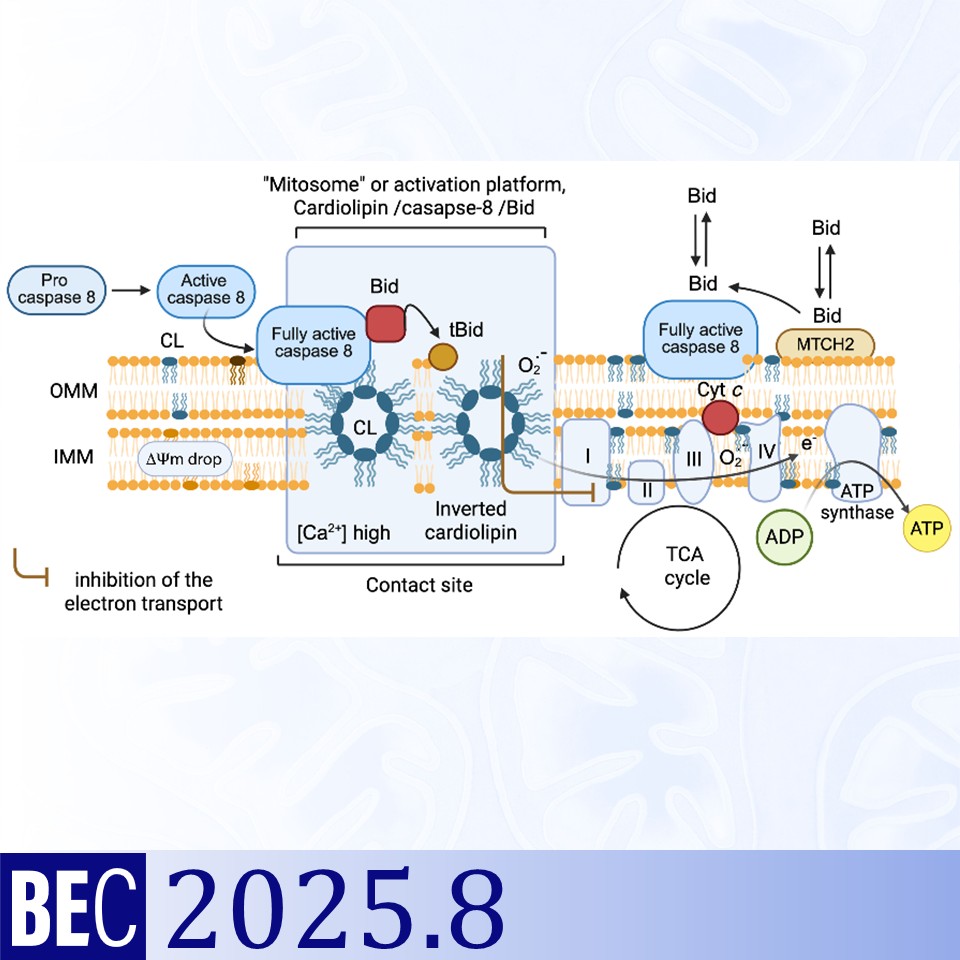Cellular ATP levels do not reflect mitochondrial defects associated with Barth syndrome
DOI:
https://doi.org/10.26124/bec.2025-0008Keywords:
adenosine triphosphate, adenosine diphosphate, mitochondria, cardiolipin, bioenergetics, Barth syndrome, adenosine monophosphateAbstract
Barth syndrome (BTHS) is a rare X-linked genetic disease characterized by cardioskeletal myopathy, growth retardation, neutropenia, and abnormally high urinary 3-methylglutaconic acid. BTHS is known to result mutations in the TAFAZZIN gene that encodes an enzyme that is essential for the biosynthesis of mature cardiolipin, an inner membrane phosholipid required for several aspects of mitochondrial function. While defects in mitochondrial structure and metabolism have been widely reported in patient cells and TAFAZZIN-deficient animal models, levels of adenosine triphosphate (ATP) have been consistently found to be unchanged. This highlights the importance of evaluating deficiencies in mitochondrial function by multiple methods that are capable of capturing the many complex functions in regulating cellular metabolism, bioenergetics, ion and redox homeostasis and cell survival. Determining the mitochondrial defects responsible for BTHS has proved challenging given the development of profound structural and functional changes that can affect a wide variety of celllar processes. For this reason, future BTHS research should focus on the impacts of non-matured cardiolipin and mono-lysocardiolipin in mitochondrial membranes and their interactions rather than solely on cellular bioenergetics or ATP perturbations. Comprehensive evaluation of bioenergetic status that includes accurate measurements of metabolic flux (e.g., respirometry with specific substrates), levels of multiple high energy phosphates (ATP, ADP, AMP, phosphocreatine), along with NADPH/NADP+ and NADH/NAD+ ratios will help to better integrate and understand how mitochodrial bioenergetic contributes to the pathogenesis of BTHS and may be modified to reveal new therapeutic strategies.
Cite:
Petit PX (2025) Cellular ATP levels do not reflect mitochondrial defects associated with Barth syndrome. Bioenerg Commun 2025.8. https://doi.org/10.26124/bec.2025-0008

Downloads
Published
License
Copyright (c) 2025 Dr. Patrice X Petit

This work is licensed under a Creative Commons Attribution-NonCommercial-NoDerivatives 4.0 International License.



